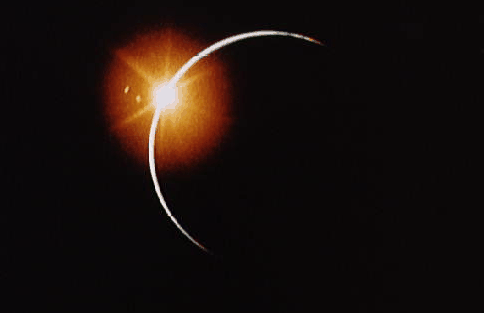hypothetical copyright exam question

[picture: 'Unsolved Mystery', by ButterflySha, used under a CC-BY license.]
Hypothetical copyright exam question for your late-night pondering: If a poem is derived from statistical analysis of 22 books, but contains no actual direct sequences from those books longer than 2-3 words, is it a derivative work of those 22 books?
Thou shalt be I. . .[hypothetical, though I think probably less interesting, parallel patent exam question: if an evolutionary algorithm creates a better design than humans, and the humans can't necessarily explain why, is the resulting design or process still patentable?]
Thou shalt be I, and quench the
fire in a pit
dug in the
direction of this rock,
deliberately,
now thy peace, the green weed
and explain the high road from which
miraculously we had
been left unsolved.
from King of Eatable Birds, by Anne Mordeus and the machine.









4 Comments:
Hmm, a very interesting pair of questions. I'm not sure if it makes me want to go to law school, or just remain a dorky engineer.
I think you can make a strong argument that the answer to the second question is no.
If a person cannot justify or defend the novelty of a patent proposal, then no patent should be given. Whether or not the design that the algorithm created is better or worse than something a human would create is irrelevant.
Awarding patents on the output of computer programs without requiring the person applying for the patent to be able to defend and justify it leads to a place where patents no longer have any value. What is to stop me from writing a computer program that simply outputs random gibberish, and filing for a bunch of patents that may or may not be useful at a later time? It feels a lot like the idea of having a million monkeys in front of typewriters and eventually they will produce Shakespeare.
I think the more interesting quesion is: what if I wrote a computer program that was smart enough to produce stuff and file for its own patents? Could a computer program be a patent holder?
Who would own the creations of that program? The writer of the source code, or the person who executed the program?
Your law school questions make my brain hurt.
I'm not sure if it makes me want to go to law school, or just remain a dorky engineer.
Remain a dorky engineer; real life work is never as interesting as the exam questions unless you're spectacularly lucky :)
As for the hypothetical about computer programs filing their own patents - aside from the fact that computers could not pass the patent bar ;) - that is a very good question. I suspect the answer is that courts would say no, since unlike copyrights, patents can't be filed by corporate/non-human entities (though they can be owned by them.)
wow. this has nothing to do with the practice of law.
To explain in advance: I'm an obnoxious first-year law student, with an undergrad it computer science (specializing primarily in AI).
I think you can make a stronger argument that the answer to the second question is yes.
In this situation, while the person attempting to prosecute the patent might not be able to justify why the patent produces something novel, that does, strangely, argue for the novelty of what the program has created (especially given the post-KSR obviousness standard).
So many ridiculous patents fail to meet the standard for novelty - they exhibit no unanticipated advantage beyond what a PHOSITA would see from the combination of pieces. Given that so many truly revolutionary inventions come about through trial and error (often through trials relating to something else), why is it so wrong to have procedural generation of a novel solution to a problem? Really, this seems to be simply an iterative, simulated solution to this problem, instead of the normal iterative, physical, cost- and time-intensive solution.
Also, I'm not sure if it's necessarily true that the person filing the patent wouldn't be able to see how what they're doing is different - strangely, solutions have a habit of being horribly obvious in hindsight.
Which, really, is one of the problems with the obviousness/novelty tests to begin with - they're easy to finesse, after the fact.
Post a Comment
<< Home